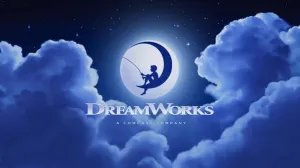The Internet is full of nonsensical challenges and stories gone horribly wrong, such is the case with the “Momo Suicide Challenge” that began its roots on the WhatsApp platform. This harmful challenge has infilitrated several games, the latest being Fortnite and other kid-focused YouTube content.
Videos by ComicBook.com
This “internet challenge” isn’t new but it does have a habit of coming back bigger each time. This time, the Suicide Game is back and invading YouTube content with audio cuts being placed in the middle of Fortnite and Peppa Pig videos. What makes this alarming is that both verticals are extremely populated by kids as the primary viewership, making parents worry about the content their kids are seeing.
What makes this harder to track versus other times Momo appeared is that the audio is being placed in the middle of the videos. So when someone starts watching it, there is nothing to indicate it’s anything that what it appears to be: a normal video.
“The video paused half way through, but he didn’t press pause,” reported a mother hailing from Swindon, England to The Sun. “Then the Momo face popped up and was making weird noises. He couldn’t hear everything it said but it was saying ‘I’m going to kill you’ and he thinks it said ‘I will hurt your friends.’ He turned it off straight away and ran downstairs. He was absolutely terrified. He wouldn’t leave my side at all after it happened. He wouldn’t stay in a room alone and he had to sleep with me in my bed last night. He asked for our German shepherd to sleep on my bed also so she could chase away Momo if she got into my room.”
For those that may not know what the Momo Suicide Game even is, it’s a challenge that originated on WhatsApp that allegedly began in Japan. A YouTuber even recently made a video about the game warning people of how it preys on the “weak” following a 12 year old’s suicide that was thought to be linked to the internet challenge.
The challenge eventually went viral and encouraged participants to hurt themselves physically, sometimes even taunting suicide. If participants refused the challenges, the ‘game’ would then send graphic images – as well as threats – until compliance occurs. While the investigation of the 12-year old Argentina girl’s tragic death is still ongoing, many companies are taking the necessary steps to keep this toxicity out of their game.
“WhatsApp cares deeply about the safety of our users,” a WhatsApp spokesperson told Fox News last year. “It’s easy to block any phone number and we encourage users to report problematic messages to us so we can take action.”
What do you think about the latest spread of this challenge? Do you agree with the police that it could be linked to a much larger concern, especially for younger gamers? Share your thoughts on the latest development in the comment section below.








